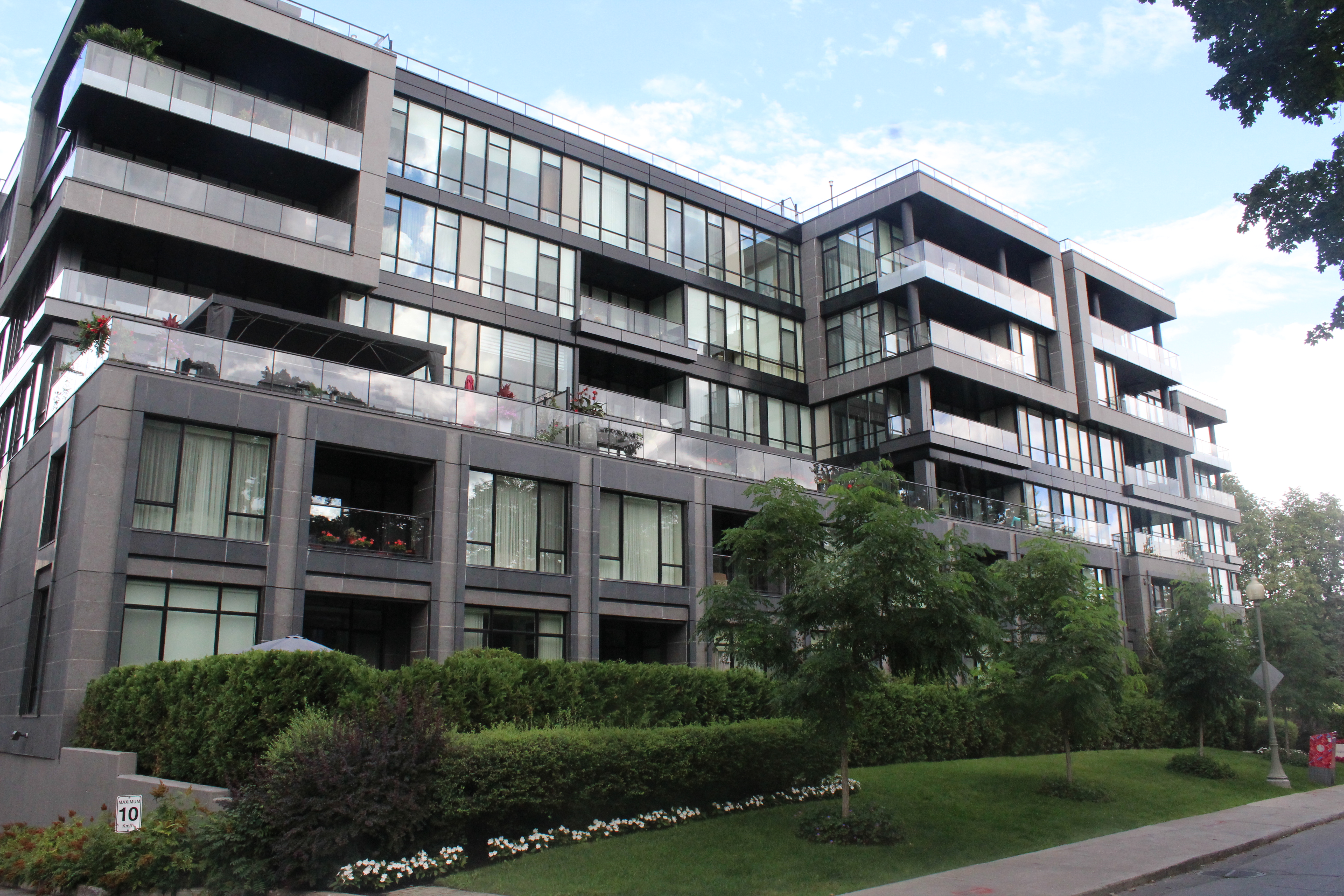What is Bill 16?
Bill 16, which groups together several legislative provisions concerning housing, was presented to the National Assembly by the Minister of Municipal Affairs and Housing on April 3, 2019, and was adopted on December 5. Since that time, certain provisions came into effect on January 10, 2020, notably the obligation of condominium syndicates of co-owners to conduct a contingency fund study every five years.

How does Bill 16 aim to maintain condominium buildings in good condition?
In order to maintain condominium buildings in good condition, Bill 16 amends the Civil Code of Québec to add new responsibilities to the purview of all syndicates of co-owners, including the obligation to establish a building maintenance logbook (article 1070.2, CCQ) and to obtain a contingency fund study (conducted by an architect, engineer, or other professional) every five years (article 1071, CCQ). These changes aim to ensure that there are sufficient funds to pay for major repairs to common areas and the replacement of common components. Bill 16 also stipulates that the amount of each co-owner’s annual contribution to the building’s contingency fund be based on the recommendations of the quinquennial study. With the help of a structural engineering firm in Montreal like Genispec, you’re guaranteed to receive accurate information and exceptional service.
What is the impact of Bill 16?
Bill 16 encompasses many new changes to the Quebec legislature surrounding shared buildings. Here are a few worth highlighting:
- Bill 16 grants new prerogatives to the Régie du bâtiment du Québec, particularly when it comes to building inspection. For example, the Régie du bâtiment du Québec would have the power to suspend work carried out by unlicensed persons, should this action prove necessary.
- As mentioned above, Bill 16 also amends the Civil Code to reinforce additional obligations for syndicates of co-ownership, including having a building maintenance logbook and the implementation of a contingency fund study. The contingency fund study determines co-owners contributions to the reserve fund.
- The new regulations in Bill 16 guarantee potential buyers key information from the syndicate prior to the potential purchase, which was not the case before.
- The law also protects condominium buyers’ down payments and imposes financial responsibilities on developers.
- Bill 16 also addresses various municipal aspects, such as contracts and property assessment, and clarifies zoning bylaws.Altogether, the new changes brought on by Bill 16 will considerably impact all parties involved in buying and owning condominiums.
What is this reserve fund that is now regulated by Bill 16?
Reserve funds, also called contingency funds in Quebec, are separate from the funds allocated to the regular maintenance of the common parts of a building. They provide a cushion for major renovations and repairs. Each month, a portion of a co-owner’s condo fees is deposited into a contingency fund to ensure that the syndicate has enough money to pay for future repairs. The reserve fund is intended only for major repairs of common areas and replacement of common components, not for regular maintenance.

What does Bill 16 mean for condominiums and co-owners?
Newly built condominiums
According to Bill 16, for a newly built condo building, developers must, within six months of the special transitional general meeting, produce a reserve fund study, as well as a maintenance logbook, and provide them to the syndicate of co-owners. This special general meeting ensures the proper transfer of the administration of the property from the developer to the syndicate of co-owners.
Existing condominiums
As far as the implications of Bill 16 on an existing condo building, the syndicate must also establish a maintenance logbook and conduct a reserve fund study, which must be done every five years. The maintenance logbook contains information on the history and technical characteristics of a condo building. It also lists any and all contracts for general and technical maintenance, as well as various warranties and insurance policies. Furthermore, it establishes the schedule for all work under the terms of a building’s asset management plan. For this reason, Bill 16 requires that the logbook be kept up to date.
An existing condo building that had not yet instituted a maintenance logbook by the time this provision of Bill 16 came into effect has up to 3 years to establish one and to conduct a reserve fund study. Condo buildings already equipped with maintenance logbooks as of January 10, 2020, are granted a similar timeframe in which to modify their logbooks in the eventuality of noncompliance with the new rules.

What are the benefits of Bill16?
Bill 16 brings several significant benefits to condominiums. Here are some of the key benefits we think are important for you to know:
- Stricter management obligations: Bill 16 imposes more rigorous obligations on condominium associations, such as the requirement to keep a building maintenance logbook. This allows for better management and monitoring of the building’s condition, thus promoting its durability and long-term value. Furthermore, carrying out a reserve fund study ensures that there are adequate provisions for major repairs and common areas. This planning reduces the risk of unforeseen expenses in the future.
- Equitable contributions from co-owners: The annual contribution to the contingency fund is based on the contingency fund study, ensuring a fair distribution of costs among co-owners according to the building’s actual needs.
- Protection of potential buyers: The law requires the association to provide clear and precise information to potential buyers, improving transparency and helping future owners make informed decisions.
- Protection of deposits: The deposits made by condominium buyers are protected, offering financial security in the event of issues with the real estate project.
- Increased responsibilities of developers: In the case of underestimating the provisional budget, developers are subject to certain financial obligations, encouraging a better assessment of construction costs from the beginning. In summary, Bill 16 strengthens the governance, transparency, and financial stability of condominiums, thereby creating a more favorable environment for condominium owners and buyers.
How does Genispec conduct reserve fund studies in accordance with Bill 16?
Our team of building engineers conducts contingency fund studies according to best practices and in accordance with the new provisions of the Civil Code of Quebec. While taking into account the requirements of Bill 16, Genispec will propose various contribution scenarios tailored to the needs of each syndicate of co-owners and each building manager in the greater Montreal, North Shore, and South Shore areas.
To learn more about these changes, you can consult:
- Bill 16, the forty-second legislature as published by the National Assembly of Québec
- Bill 16, as shared on the National Assembly of Quebec website
Why work with Genispec?
Our building engineers in Montreal are equipped to assist you with your next reserve fund study, building maintenance logbook, or your facade inspection. We specialize in commercial and industrial building inspections. Our structural engineers in-depth knowledge of Bill 16 allows them to meet your needs while ensuring that all the new regulations are adhered to. In conclusion, Bill 16 project brings significant changes to ensure the protection of buyers, the quality of constructions, and the smooth operation of the concerned companies,associations and municipalities. For more information, contact Genispec Inspections directly.
